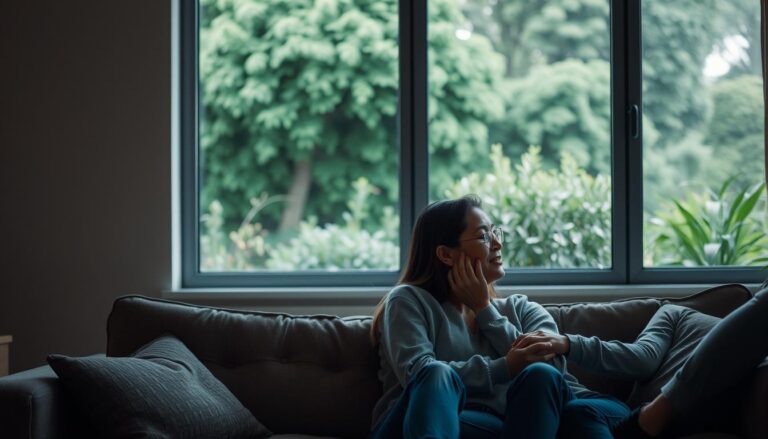Alone Time vs. Togetherness: Striking the Perfect Balance in Your Relationship
Finding the right mix of personal space and quality time with your partner can be tough. In today’s fast world, couples often find it hard to get it just right. This can lead to feeling too close or too far apart.
It’s important to balance independence and interdependence in a relationship. When you get it right, it can make your bond stronger. It also helps you grow as individuals and connect deeper with each other.
Key Takeaways
- Understanding the importance of personal space in a relationship
- Recognizing the benefits of quality time with your partner
- Identifying the signs of imbalance in your relationship
- Strategies for achieving equilibrium in your relationship
- Tips for maintaining a healthy balance between independence and interdependence
The Psychological Benefits of Space and Connection
Personal space and shared moments are key to a good relationship. They help people stay independent yet close to their partner. This balance is vital for a healthy, happy bond.
It’s important to manage personal space well in a relationship. It lets people recharge and grow on their own. They can also enjoy their own interests without feeling pressured. At the same time, keeping independence in a relationship is crucial. It helps people feel their own identity and stay happy.
How Alone Time Fosters Personal Growth and Identity
Alone time is essential for growth. It lets people reflect on their experiences and recharge their emotional batteries. They can also explore their interests without needing to compromise.
For example, someone who loves painting can use alone time to improve their skills. This hobby brings joy and adds new things to share with their partner. It helps grow both personally and as a couple.
| Benefits of Alone Time | Description |
|---|---|
| Personal Growth | Alone time allows for self-reflection and the pursuit of personal interests. |
| Independence | Fosters a sense of autonomy and identity. |
| Recharge | Provides an opportunity to emotionally recharge. |
Why Meaningful Togetherness Strengthens Bonds
Being together in meaningful ways is more than just time spent together. It’s about sharing experiences and deepening emotional intimacy. Doing things you both love strengthens your bond and creates a sense of unity.
For instance, couples who enjoy cooking or hiking together grow closer. These shared activities create lasting memories and build a stronger relationship.
Recognizing Imbalance: When Your Relationship Needs Adjustment
When the balance between alone time and being together is off, relationships can suffer. It’s important to notice when things are out of balance. This helps make the needed changes to keep the relationship healthy and happy.
Signs You’re Sacrificing Too Much Personal Space
When you give up too much personal space, you might feel resentful and frustrated. Signs include feeling trapped, having no time for yourself, and losing who you are.
- Feeling like you’re losing your sense of self
- Having no time for personal hobbies or interests
- Feeling suffocated or trapped in the relationship
Red Flags of Disconnection and Parallel Living
When couples spend more time together but feel less connected, it’s a problem. Red flags include not having deep talks, feeling like you’re just roommates, and less emotional closeness.
| Signs of Disconnection | Signs of Parallel Living |
|---|---|
| Lack of meaningful conversations | Feeling like roommates |
| Decrease in emotional intimacy | Living separate lives under the same roof |
How Imbalance Affects Relationship Satisfaction
Imbalance can really hurt how happy you are in a relationship. Too much or too little time together can make you feel isolated, lead to fights, and make you unhappy. Finding a balance is crucial for a healthy and fulfilling relationship.
By spotting the signs of imbalance and making changes, couples can find a better balance. This helps strengthen their relationship.
Strategies for Balancing Alone Time and Togetherness
A good relationship needs a balance between being alone and being together. Finding this balance is a journey that takes understanding, talking, and sometimes giving in. It’s not something you do once and forget about.
Establishing Healthy Boundaries
Boundaries are key in any relationship. They help respect each other’s alone time while keeping a strong bond. Healthy boundaries make both partners feel safe and understood, avoiding feelings of resentment and fights.
To set these boundaries, it’s important to talk openly about what you both need. Discuss your daily routines, personal space, and how to ask for time alone or together.
Creating Rituals for Connection and Independence
Rituals are important for finding a balance between alone time and being together. Regular date nights can strengthen your bond, while solo activities can help you grow personally. The goal is to find rituals that respect both sides.
| Rituals for Togetherness | Rituals for Independence |
|---|---|
| Weekly dinner dates | Solo reading time |
| Joint workout sessions | Personal meditation practice |
| Attending events together | Pursuing individual hobbies |
Finding Activities That Satisfy Both Needs
Some activities meet both needs for togetherness and alone time. For instance, working on a joint project where you both can contribute. Or going to a class together where you can work on your own.
By using these strategies, you can find a balance that honors both partners’ needs. This will help strengthen your relationship and make it more resilient.
The Art of Communicating Balance Needs
It’s a delicate dance to balance wanting to be alone with needing someone. In any relationship, it’s key to share your needs clearly and with respect. This helps keep things harmonious and understood.
It’s important to tell your partner how much space you need without making them feel bad. Be kind and reassuring. Let them know your alone time doesn’t mean you don’t care about them.
Expressing Your Desire for Space Without Causing Insecurity
Use “I” statements to share your feelings and needs. Say “I feel overwhelmed and need some time to recharge” instead of “You’re too much for me.” This way, you avoid blame and defensiveness.
Requesting More Connection Without Seeming Needy
When you want more time together, talk about it in a way that doesn’t seem clingy. Share the good things about your relationship and how it makes your life better together.
Negotiation Techniques for Different Attachment Styles
Different people need different ways to talk about their needs. For example, those who worry a lot need reassurance, while those who like their space need respect. Knowing this can help you talk better.
| Attachment Style | Negotiation Technique |
|---|---|
| Anxious | Provide reassurance, frequent check-ins |
| Avoidant | Respect independence, avoid pressure |
| Secure | Open dialogue, mutual respect |
By using these strategies and knowing your partner’s style, you can find a good balance. This way, you can enjoy your alone time and still be close in your relationship.
Finding Your Balance
It’s important to balance alone time and being together in a relationship. Understanding the need for personal space and connection helps couples understand each other better.
Knowing when things are out of balance and making changes is key. Setting boundaries, creating special rituals, and finding activities that both enjoy can help. These steps lead to a more balanced relationship.
Talking openly is crucial for finding this balance. When partners share their needs clearly and with understanding, they can find a balance that strengthens their bond.
Keeping a relationship balanced is a continuous effort. Being mindful of the need for balance and working towards it helps couples build a stronger, more resilient relationship.







